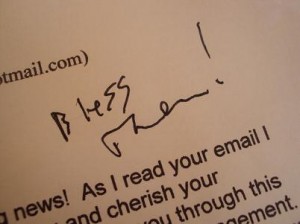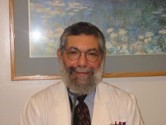Today I did something I said I’d never do again, but an old habit got in the way of my new resolve. I picked up a packet… no… a box-full of hard-copy photos from the store. I’m embarrassed to say I now have 307 new prints to put into albums.
An old Chinese proverb says, “Habits are cobwebs at first, cables at last.” As the wildlife in our basement continues to benefit from cobwebbing our 196 photo albums, I’m upstairs shackling myself with a cable that just wrapped around me 307 times. Now I have the substantial undertaking of putting these prints in books that I haven’t even bought yet. Worst of all, it’ll put us over the 200-album mark, a dubious honor.
What could possibly be the reason for such idiocy? I do have one. It’s the tiny but potent memory card inside my digital camera. Because I can delete any photo, I click with abandon, which is what brought me up against three maxed-out cards that needed clearing. The thought of losing even one good shot nagged me until I finally decided to make 4×6 copies to have and to hold… as is my habit.
After deleting two-thirds of each memory card while seated in front of a store kiosk, I walked out of Walgreens feeling as though I’d gone on a diet and lost 20 pounds, despite gaining 307 photos. But a low moment awaited: clearing the memory cards. Pushing that “Delete All” button was more traumatic than pushing the button to launch a nuclear attack. It meant forever! What if I’d missed printing even one good picture?
My kids have pressed me to give up hard copies entirely, and I promised I would… next time. Today I concluded that my unstoppable photo collecting can continue just a little longer. How can I ignore the cry of my basement albums? “You’ve loved us for so long! You can’t stop now!”
Has this become a bad habit? Well if it is, it’s completely harmless.
But are there any completely harmless bad habits?
My 307 pictures got me thinking. How many other bad habits do I have that haven’t been classified as such? What other negative behaviors far more serious than album-collecting ought to be stopped? Every bad habit has something tantalizing within it. We can’t lick it because we like it. It feeds us somehow, gratifies something, gives back in some way. If it didn’t, we could walk away.
Experts tell us the best way to get rid of an undesirable habit is to substitute a desirable one. But since there’s already something captivatingly desirable nestled within every bad habit, finding an even more desirable substitute can be problematic and is one of life’s greatest challenges.
If I could just figure out how to conquer my album-addiction, maybe I could triumph over other bad habits, say, my love affair with sugar. How could there ever be anything more desirable than sugar? For now, I’m just trying to think of something more appealing than stockpiling photos in the basement. After watching Louisa reorganize her computer pictures for several hours straight, keeping computer albums doesn’t seem all that desirable. Talk about time-intensive!
Dusting the cobwebs off my basement albums can be done in three minutes flat. If I’m eating candy, in two.
”For as he thinks within himself, so he is.” (Proverbs 23:7a)



